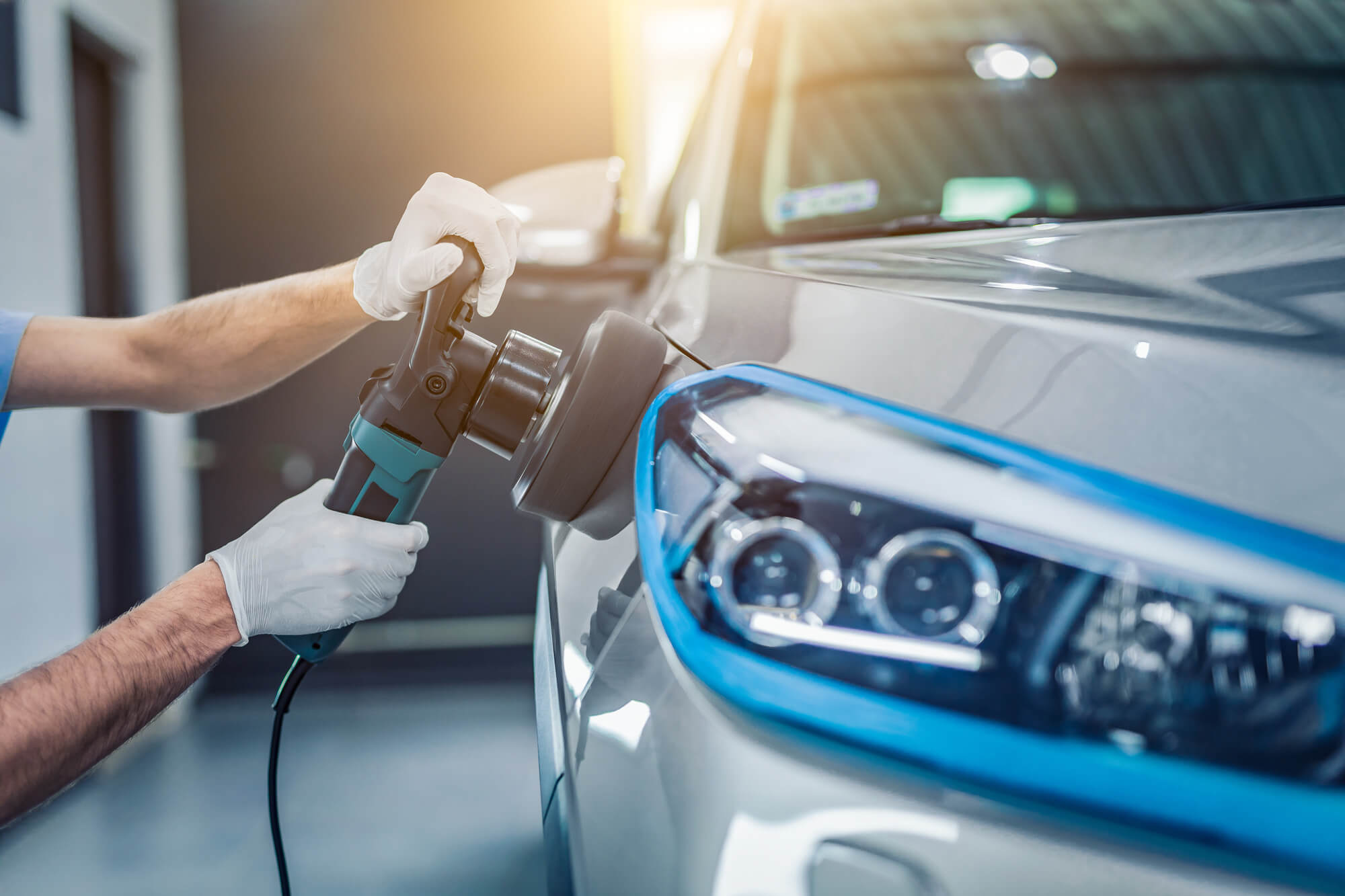The condition of your car’s paint not only affects its appearance but also plays a crucial role in preserving the vehicle’s overall value. Over time, a car’s exterior is exposed to a range of environmental factors that can cause gradual wear and tear, including UV rays, dirt, debris, and harsh weather conditions. However, with the help of mobile car detailing, you can maintain and even extend the life of your vehicle’s paint. In this comprehensive guide, we’ll explore the importance of mobile car detailing, the detailing process, and how it contributes to the longevity and beauty of your car’s paint.
The Significance of Car Paint
A vehicle’s paint serves more than just an aesthetic purpose; it acts as a protective barrier. Here are some key reasons why preserving your car’s paint is essential:
Protection from UV Rays: The sun’s UV rays can be highly damaging to a car’s paint. Over time, exposure to UV rays can lead to fading and peeling. Maintaining a protective layer on the paint can shield it from the sun’s harmful effects.
Preventing Rust: The paint acts as a protective shield against moisture. When the paint is compromised, it leaves the metal underneath vulnerable to rust, which can quickly spread and cause significant structural damage.
Enhancing Resale Value: Well-maintained paint significantly contributes to your vehicle’s resale value. A car with a faded, scratched, or peeling exterior is likely to fetch a lower price on the market.
Aesthetic Appeal: A beautifully maintained paint job not only reflects your pride in ownership but also adds to the overall aesthetics of the vehicle.
What Is Mobile Car Detailing?
Mobile car detailing is a specialized service that involves the thorough cleaning, restoration, and protection of a vehicle’s exterior and interior. Unlike traditional car washes, mobile detailing is a comprehensive and highly personalized process that can be performed at your location, whether it’s at home or work. The focus is not just on cleanliness but on the preservation and enhancement of your car’s paint and appearance.
The Mobile Car Detailing Process
A professional mobile car detailing service typically includes the following steps:
- Washing: The process starts with a thorough car wash. However, this is not your average car wash. Detailers use high-quality car wash soap and techniques to remove dirt, grime, and contaminants from the surface of the vehicle.
- Decontamination: Detailers use clay bars or specialized decontamination products to remove embedded contaminants that cannot be removed through regular washing. This step ensures a smooth surface for subsequent treatments.
- Paint Correction: This step involves correcting imperfections in the paint, such as swirl marks, scratches, and oxidation. Detailers use machine polishers and compounds to restore the paint’s luster.
- Protection: To safeguard the paint, detailers apply a protective layer, often in the form of wax or ceramic coatings. These products create a barrier against UV rays, moisture, and environmental contaminants.
- Interior Detailing: Mobile car detailing services often include interior cleaning and protection. This can involve vacuuming, leather or fabric cleaning, and the application of protectants to maintain the interior’s appearance.
- Final Touches: Detailers finish by cleaning and polishing exterior elements like tires, wheels, and glass to ensure a complete, polished look.
Extending the Life of Your Car’s Paint
Mobile car detailing plays a significant role in extending the life of your vehicle’s paint. Here’s how it accomplishes this:
- Protection from Environmental Factors: The protective products applied during the detailing process act as a shield against UV rays, dirt, debris, and moisture. This prevents premature paint degradation and oxidation.
- Preventing Oxidation: Oxidation occurs when the paint’s protective layer is compromised. Detailing helps maintain this layer, preventing oxidation and the resulting damage.
- Minimizing Scratches: Detailing can remove or diminish the appearance of scratches and swirl marks, preventing further deterioration of the paint.
- Maintaining Resale Value: A car with well-preserved paint will have a higher resale value. If you plan to sell your vehicle in the future, mobile car detailing is an investment in retaining its worth.
- Enhancing Aesthetics: Detailing enhances the overall appearance of your car. A well-maintained vehicle not only looks better but also gives you a sense of pride in ownership.
Effect of Weather on Detailing
Weather conditions can have a significant impact on the effectiveness of mobile car detailing and the longevity of your vehicle’s paint. Understanding these effects is crucial for maintaining the beauty and protection of your car’s exterior. Here’s how weather can influence the detailing process:
- Sun Exposure:
- Effect: Intense sunlight can accelerate the deterioration of your vehicle’s paint. UV rays can cause fading, oxidation, and premature aging.
- Detailing Impact: Mobile car detailing is essential in sunny climates. Protective products applied during detailing create a shield against UV rays, preventing paint damage and maintaining the paint’s vibrancy.
- Rain and Moisture:
- Effect: Rain, humidity, and moisture can promote the growth of mold, mildew, and water spots on your car’s exterior. Water can also carry contaminants that adhere to the paint’s surface.
- Detailing Impact: Regular detailing helps remove water spots, contaminants, and prevents the buildup of mold and mildew. Protective coatings act as a barrier against moisture, preventing paint damage.
- Snow and Ice:
- Effect: Cold weather, snow, and ice can lead to the accumulation of salt and road chemicals on your vehicle’s paint. These substances can cause corrosion and rust.
- Detailing Impact: Winter detailing is vital to remove salt and chemicals from the paint’s surface. Proper cleaning and protective treatments help prevent damage caused by these harsh winter elements.
- Pollen and Tree Sap:
- Effect: Pollen and tree sap are common during the spring and summer months. They can adhere to the paint, causing staining and potential damage.
- Detailing Impact: Detailing removes pollen, sap, and other contaminants efficiently. The protective layer applied during detailing makes it more challenging for these substances to bond with the paint.
- Extreme Temperatures:
- Effect: Extreme heat or cold can affect the paint’s expansion and contraction, potentially leading to paint cracking and damage.
- Detailing Impact: Regular detailing with the application of protective coatings helps stabilize the paint’s temperature and prevents it from cracking due to extreme conditions.
How Often Should You Detail Your Car?
The frequency of mobile car detailing depends on various factors, including your car’s exposure to environmental conditions and your personal preferences. However, a general guideline is to detail your car every four to six months. This ensures that the protective layers are consistently maintained and that your paint remains in excellent condition.
Conclusion
Mobile car detailing is not just about keeping your car clean; it’s a comprehensive process that contributes to the longevity and beauty of your vehicle’s paint. By protecting it from environmental factors, preventing oxidation, minimizing scratches, and maintaining the vehicle’s resale value, detailing offers significant benefits. If you want to preserve your car’s paint and ensure it continues to turn heads on the road, mobile car detailing is a worthwhile investment.


